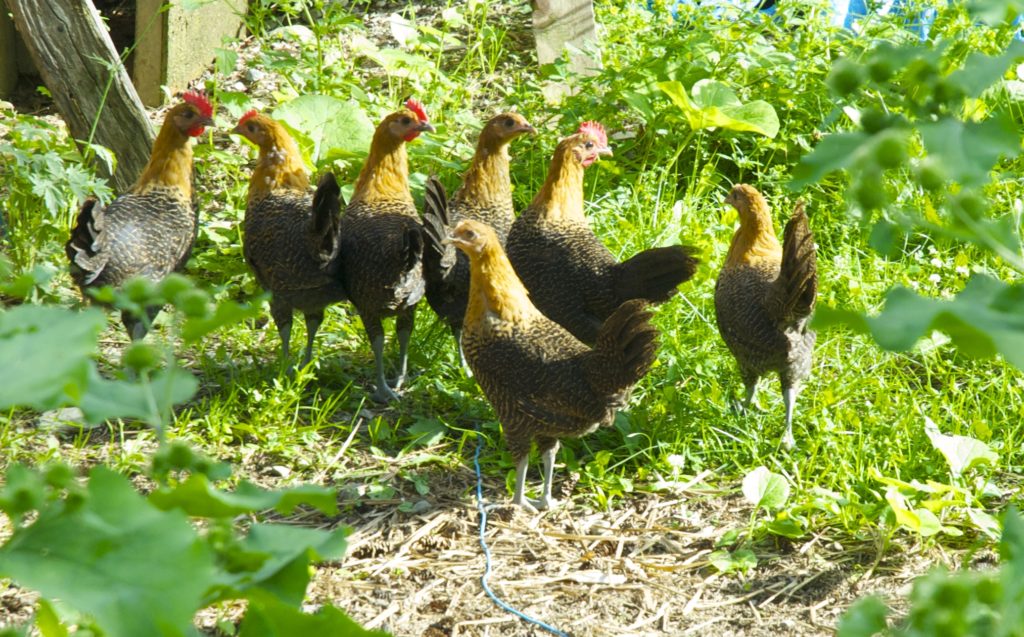There are specific definitions of what qualifies as a farm

A working farm has a lot going on. It can be a place that harvests produce, raises animals, grows landscaping plants or trees. But when it comes to what qualifies as a farm, there are very specific criteria.
The U.S. Department of Agriculture and the Internal Revenue Service, both have their own definitions of what qualifies as a farm. Some state entities, such as universities, may also have their own. Here’s an overview of definitions.
Official definition of farms
According to the United States Department of Agriculture, “A farm is defined as any place from which $1,000 or more of agricultural products were produced and sold, or normally would have been sold, during the year.”
This definition takes into account that farms that may not have sold $1,000 or more of products in a specific year, but normally do every other year. According to the USDA, these tend to be smaller farms that experience low sales in a particular year. These farms tend to be very small and normally have profitable seasons. In some years, however, they experience low sales due to bad weather, disease or changes in marketing strategies.
IRS definition of what qualifies as a farm
According to the United States Internal Revenue Service, a business qualifies as a farm if it is actively cultivating, operating or managing land for profit. A farm includes livestock, dairy, poultry, fish, vegetables and fruit.
Individuals or businesses that meet the definition of farming may be able to deduct certain farm-related expenses or losses as part of their annual tax filing.
The IRS does, however, make a solid distinction between a production farm and a so-called hobby farm in which an individual grows and sells small amounts of produce or other crops or livestock in addition to their regular employment off the farm. While the income generated from these hobby farm sales must be declared when filing taxes, if it does not represent your primary source of income, you do not qualify as a farm according to the IRS.
When it comes to figuring out your farm tax status, the IRS has several publications and resources available online at www.irs.gov/publications/p225.
Farms vs homesteads
Tori Jackson, professor of agriculture and natural resources with the University of Maine Cooperative Extension Service, works with farmers around the state and she defines a farm as land that produces food or fiber for sale or consumption off the farm.
“Homesteads are different from farms,” Jackson said. “On a homestead, the food or fiber is grown only for the people living on that land.”
When people think of a farm, Jackson said, they usually put it into one of two broad categories — the small family farm or the larger corporate factory farm.
“There are very few small farms still owned by a single family in this country,” Jackson said. “It used to be such a traditional way of life.”
Keeping track of farms
The USDA has collected data on farms through the detailed Census of Agriculture every five years since 1840. The census is administered by the USDA National Agricultural Statistics Service and gathers data on land use, ownership, production, income, expenditures and operator demographics.
The most recent census was taken in 2017 and the results released this past April and are available online at www.nass.usda.gov.
According to the USDA 2017 census, the smallest farms in the country with 1 to 9 acres in production account for less than 1 percent of all farmland. The largest farms — those with 2,000 or more acres in production — account for 58 percent of all farmland in the country.
Jackson said in Maine, however, smaller farms are on the rise with more young people becoming involved in agriculture.
According to the USDA census, there are 1,412 young farmers — individuals 35-years-old or younger — working on 1,001 farms in Maine.
The census also reported 2,739 new Maine farmers on 4,398 new farms.
“With so many new and young farmers in Maine, it’s an exciting time for agriculture in the state,” Jackson said.

Good article! I call what we live on a “farm” but never really felt entirely comfortable with that. We have lots of land, but don’t “farm” most of it per se, and don’t grow and raise the majority of our own food, i,e. don’t raise meat animals, so “homestead” doesn’t feel right either, although we do grow vegetables, fruits, berries, herbs and raise chickens, ducks and geese. Hobby farm or farmstead feels more accurate. I do earn all my income from our farm, but in the form of writing about it… so not sure that qualifies as selling “food or fiber”! It’s a quandry for sure….